A Successful Case of CAR-T Cell Immunotherapy for Multiple Myeloma in China
A Successful Case of CAR-T Cell Immunotherapy for Multiple Myeloma in China
At the Bone Marrow Transplantation Center of the First Affiliated Hospital of Zhejiang University School of Medicine in China, there is a “Pharmacy God” team that wrestles with the Grim Reaper every day. They use the latest cell therapy technique – Chimeric Antigen Receptor T-cell (CAR-T) therapy to treat malignant hematological diseases, with a success rate of over 90%. Currently in the clinical trial stage, the cost of CAR-T cell preparation is free.
FARES, a successful Lebanese entrepreneur suffering from multiple myeloma for years
In a month or two, the Lebanese cedar, a symbol of tenacity, will be in bloom. At the Bone Marrow Transplantation Center of the First Affiliated Hospital of Zhejiang University School of Medicine in China, there is a foreign face named Fares who, after undergoing CAR-T therapy, is about to recover and return to his home country, just in time to witness the blossoming of the cedar trees.
Fares, 59, hails from Beirut, the capital of Lebanon, known as the “Little Paris of the Middle East.” A successful entrepreneur widely known by 70% of the Lebanese population, his business spans across Europe and Asia.
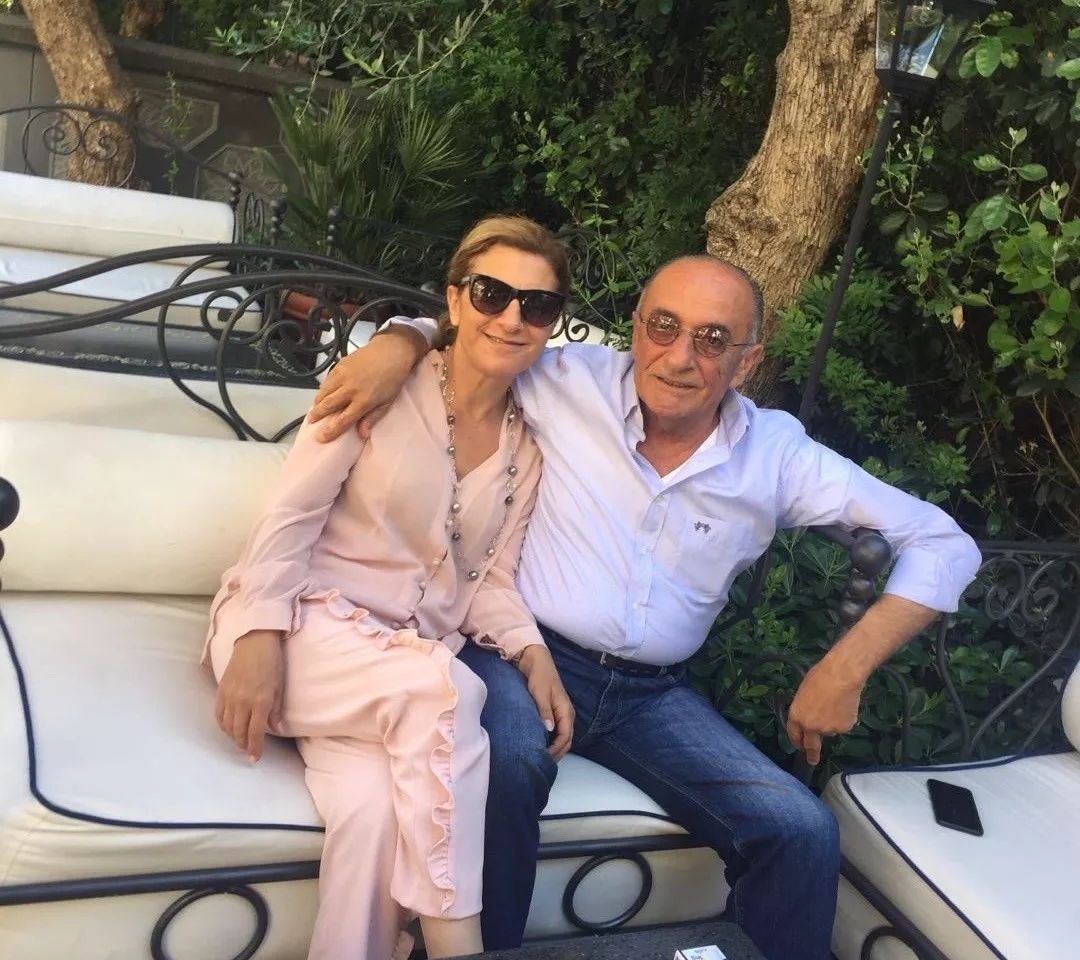
(Fares with his wife before relapse)
In June 2012, Fares was admitted to a local hospital in Beirut due to whole-body bone pain, fever, and renal failure, and was diagnosed with κ light-chain multiple myeloma. He subsequently underwent two autologous hematopoietic stem cell transplants in September 2012 and October 2016, but the cancer cells relapsed multiple times shortly after.
Throughout 2017, Fares visited numerous renowned cancer centers worldwide, including those in France and the United States, exhausting virtually all available treatment options for multiple myeloma globally and spending a substantial amount on treatment costs. However, the treatment outcomes remained unsatisfactory.
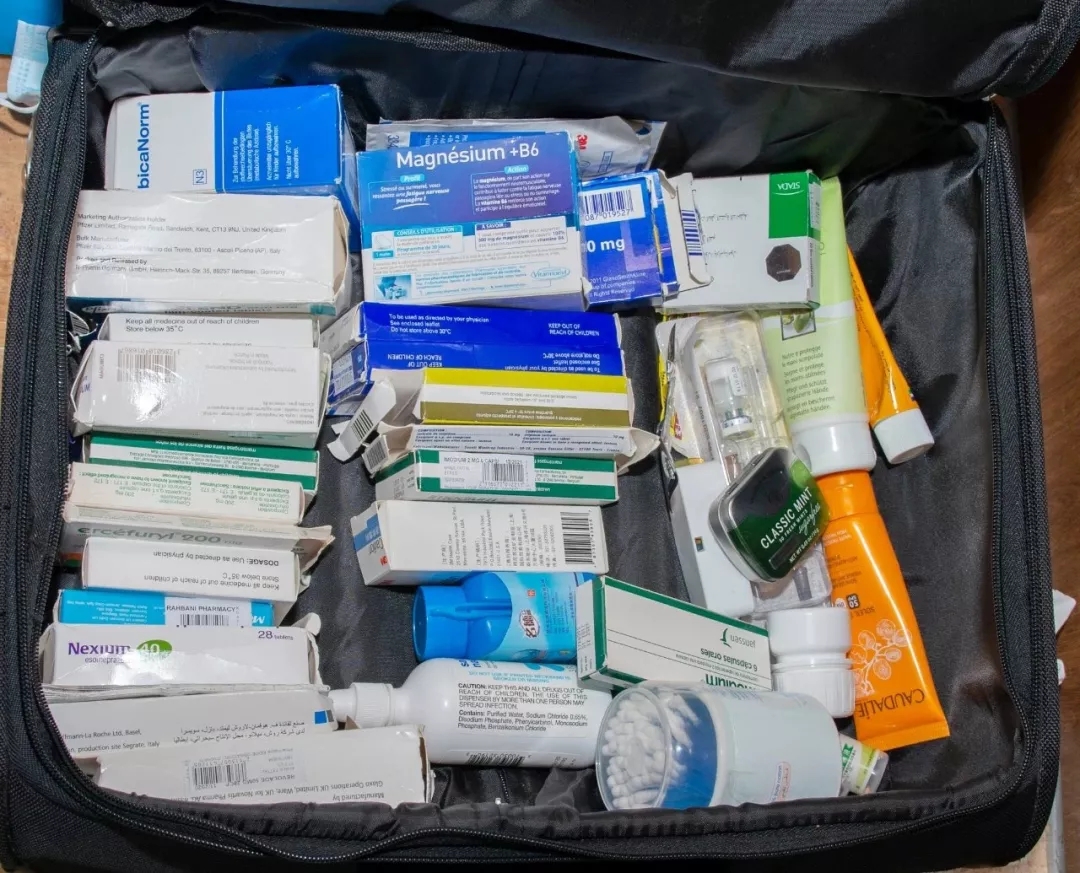
(Medications required for Fares)
On May 18, 2018, Fares visited the Dana-Farber Cancer Institute, affiliated with Harvard Medical School and ranked 4th globally for cancer care, hoping to receive the cutting-edge international treatment “CAR-T therapy.” However, due to his low platelet count, the institute refused to administer CAR-T therapy to Fares, leaving him with no choice but to receive platelet and red blood cell transfusions at a local hospital in the United States to sustain his life.
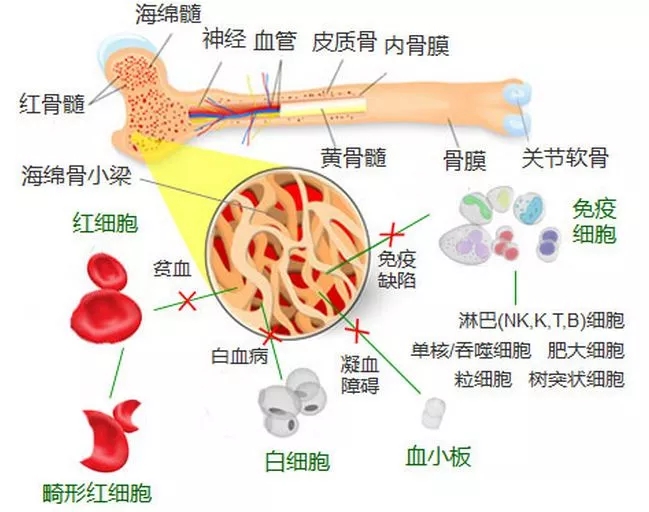
Multiple myeloma (MM) is a highly prevalent malignant hematological disease worldwide. Clinical manifestations are diverse, primarily including anemia, bone pain, renal failure, infections, and bleeding. Current international standard treatments involve chemotherapy, radiation therapy, and targeted drug therapy, but they cannot cure the disease, which ultimately progresses to a drug-resistant stage, resulting in a “death sentence.”
Fares, a powerful figure in the business world, was in excruciating pain due to the disease and nearly gave up treatment, ready to accept the death sentence in the United States. Just when he was in despair, a phone call from Professor Mohamad Mohty, a former president of the European Society for Blood and Marrow Transplantation, changed Fares’ fate. Through Professor Mohty, Fares learned that Professor Huang He’s team at the Bone Marrow Transplantation Center of the Blood Department at the First Affiliated Hospital of Zhejiang University School of Medicine was one of the earliest, most experienced clinical research centers in China to conduct CAR-T cell therapy, with the largest number of cases treated. Fares immediately changed his flight and arrived in Hangzhou, China, on July 5, 2018, seeking help from China’s CAR-T “Pharmacy God” team.
Seeking medical treatment abroad at the First Affiliated Hospital of Zhejiang University School of Medicine, CAR-T therapy shows its might
On July 6, 2018, the second day after arriving in Hangzhou, this frail Middle Eastern tycoon was admitted to the Bone Marrow Transplantation Center of the First Affiliated Hospital in a poor physical condition. He appeared pale and lethargic, with petechiae all over his skin, renal failure, whole-body bone pain, and was sustaining his life with painkillers and blood transfusions.
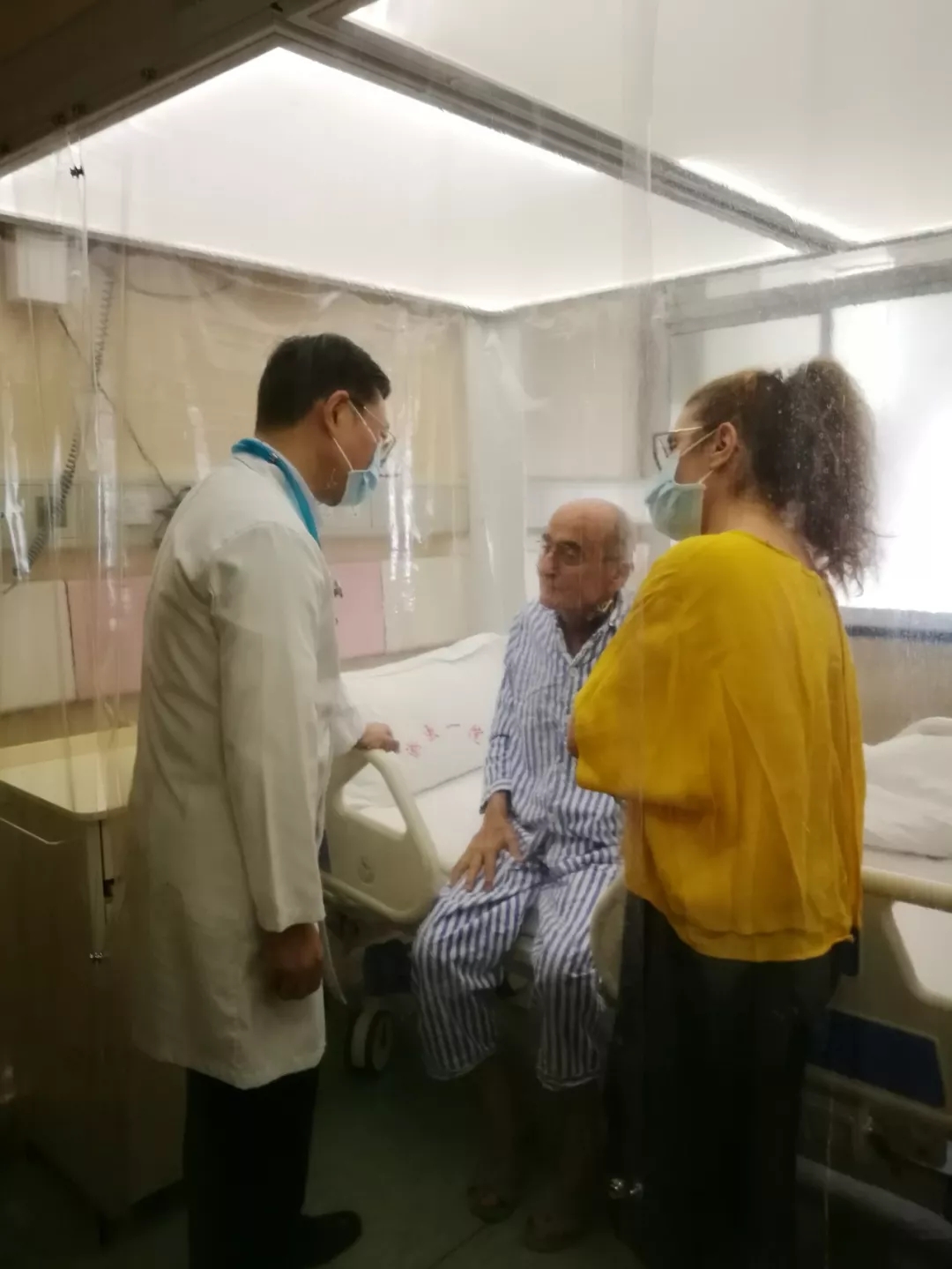
Professor Huang He, the director of the Bone Marrow Transplantation Center, and his team immediately conducted a comprehensive and thorough evaluation of Fares’ physical condition. After the assessment, they concluded that his general condition was poor, with a long disease history, multiple chemotherapy sessions, a high tumor burden, bone marrow infiltrated by myeloma cells throughout the skeletal system, and various complications… All of these factors would pose a severe challenge for Professor Huang’s team in the subsequent treatment, which was the primary reason why the American hospital was unwilling to administer CAR-T therapy to Fares.
Nevertheless, Professor Huang and his team, imbued with the aspiration to treat every patient with hematological diseases wholeheartedly and with compassion, unhesitatingly accepted this challenge. Professor Huang organized multidisciplinary discussions multiple times with associate directors Cai Zhen and Wei Guoqing, deputy chief physician Hu Yongxian and Wu Wenjun, director of the Blood Transfusion Department Xie Jue, director of the VIP ward Yang Yunmei, and director of the PET-CT Center Zhao Kui, to evaluate Fares’ condition after admission and formulate a targeted treatment plan.
For Fares’ terminal multiple myeloma, the expert panel ultimately devised a three-step treatment strategy: first, collect Fares’ T lymphocytes to prepare the CAR-T cells; second, successfully infuse the CAR-T cells to eradicate the cancer cells; third, safely overcome potential CAR-T-related adverse events such as cytokine release syndrome and achieve immune and hematopoietic function recovery, aiming for remission and discharge. However, due to multiple previous chemotherapy sessions and two hematopoietic stem cell transplants, Fares’ hematopoietic sites were entirely occupied by cancer cells, leaving him with almost no hematopoietic function and extremely low lymphocyte counts, making it impossible for the medical staff to collect sufficient T lymphocytes to prepare the CAR-T cells.
After two weeks of precise treatment, Professor Huang’s team managed to slowly restore part of Fares’ hematopoietic function.
July 20, 2018, was an exciting day. Accompanied by his wife and two daughters, Fares went to the Cell Collection Room of the Bone Marrow Transplantation Center, lying calmly on the collection bed, filled with anticipation. Fares’ blood slowly flowed through the cell separator, and sufficient T lymphocytes were collected through another tube, while the remaining blood components were returned to his body. Professor Huang’s team successfully harvested enough T lymphocytes from Fares using the most advanced cell separator, allowing these originally “powerless” T lymphocytes against cancer cells to be equipped with a “GPS navigation system” in the laboratory, turning them into “precision-guided missiles” that could accurately and effectively strike the cancer cells. After 10 days of culture in the laboratory, the CAR-T cell transduction efficiency was found to be 43%, reaching the most advanced international level of preparation.
Finally, on July 30, Fares awaited the day of CAR-T cell infusion. These seemingly “insignificant” CAR-T cells would proliferate and expand massively within his body, engaging in an intense, smokeless battle against the “impenetrable” cancer cells that had been fighting him for six years.
The most critical challenge following CAR-T cell infusion was the management of adverse events such as cytokine release syndrome. This syndrome is primarily caused by the rapid expansion of CAR-T cells within the body and the release of “weapons” to kill cancer cells. The research team monitored Fares’ CAR-T cell levels daily, with a peak of 74%, indicating robust expansion and potent cancer-killing ability of the “missiles” within Fares’ body, but also suggesting a higher likelihood of severe cytokine storms.
Particularly during the most critical stage of the illness, Professor Huang’s medical and nursing team actively employed intravenous nutrition, fluid replenishment, anti-infection measures, blood product transfusions, and meticulous attention to urine and bowel movements. With the extensive clinical experience in CAR-T cell therapy at the Bone Marrow Transplantation Center, Fares received the potent drug IL-6 receptor antagonist at the optimal timing to treat cytokine release syndrome, and his temperature returned to normal from 40°C. The use of this potent drug at this point did not affect the killing effect of CAR-T cells.
This intense battle between CAR-T cells and cancer cells posed a severe challenge for the medical staff. Simultaneously, Fares’ family members were by his side, serving as his spiritual pillar.
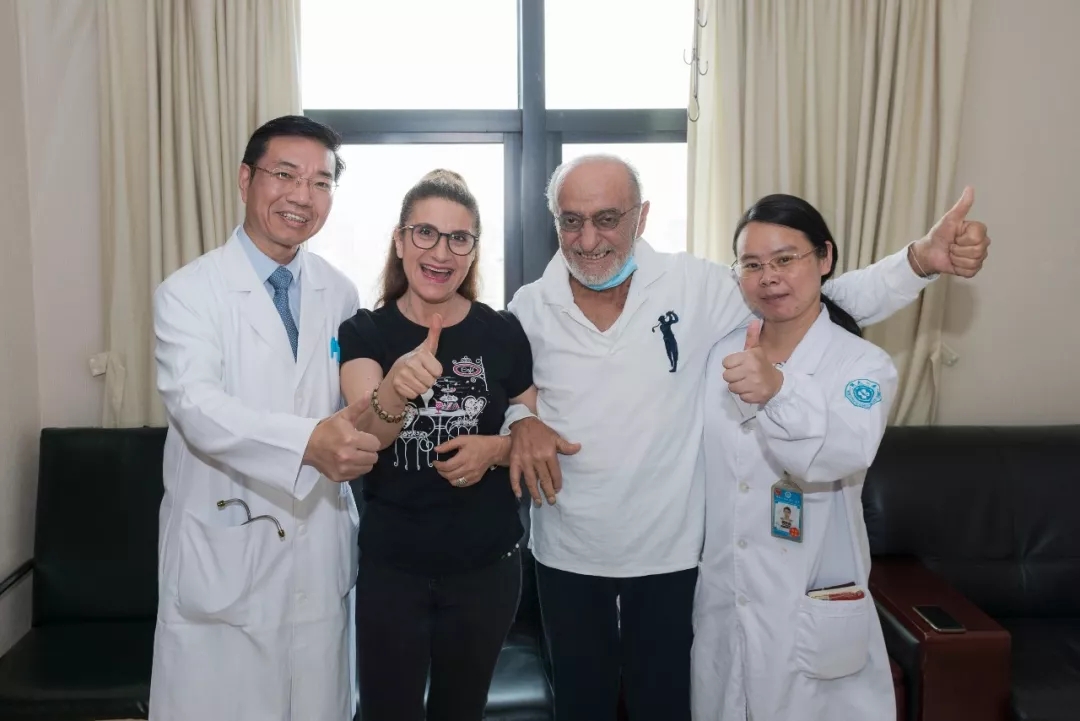
Ultimately, through the joint efforts of the entire medical staff, the patient, and his family members at the Bone Marrow Transplantation Center of the First Affiliated Hospital, Zhejiang University School of Medicine, the good news arrived. On the 8th day after CAR-T cell reinfusion, no cancer cells could be found in Fares’ bone marrow, and his bone pain had disappeared.
After a month in the sterile laminar flow bed, through his unwavering determination, his family’s attentive care, and the unremitting efforts of the medical staff at the Bone Marrow Transplantation Center, Fares finally left the sterile laminar flow bed on August 31, 2018, and was transferred to a VIP ward. Fares’ joy was indescribable, as he knew this marked the beginning of a new life, with a wonderful life beckoning him.
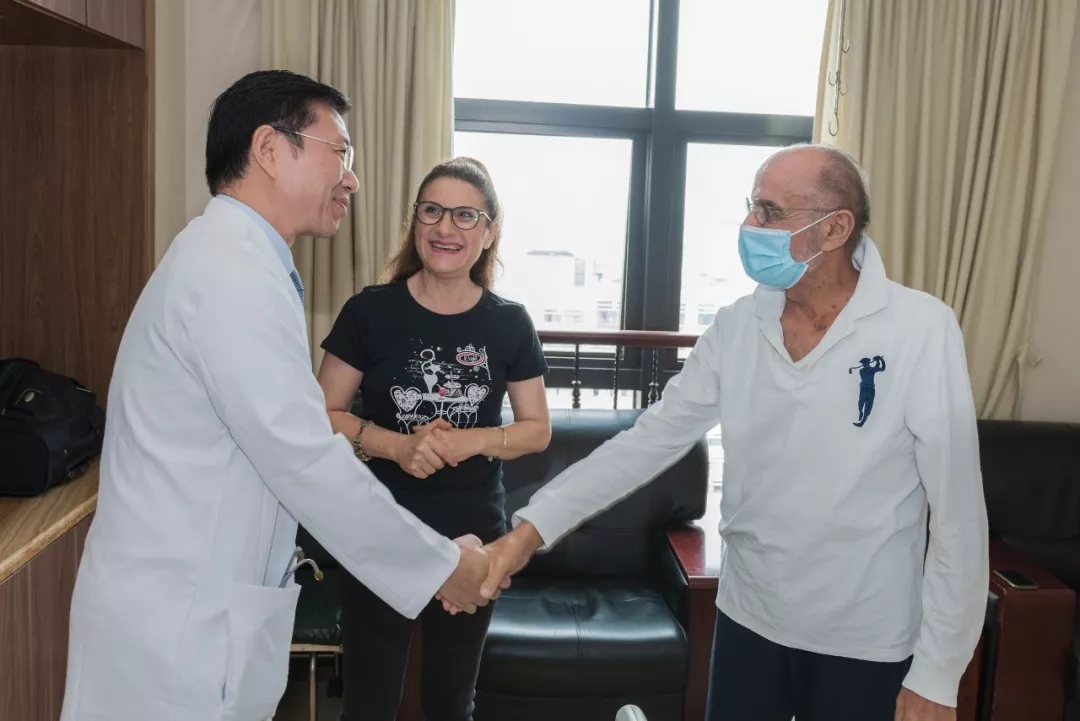
“I would visit you directly if I knew you before!” Fares said gratefully, shaking Professor Huang’s hand. When he was first admitted, Fares rarely smiled due to the pain from his illness. However, who knew that after the CAR-T therapy took effect, Fares was no longer in pain, and his body had recovered, transforming him into a lively and talkative “dashing old man.”
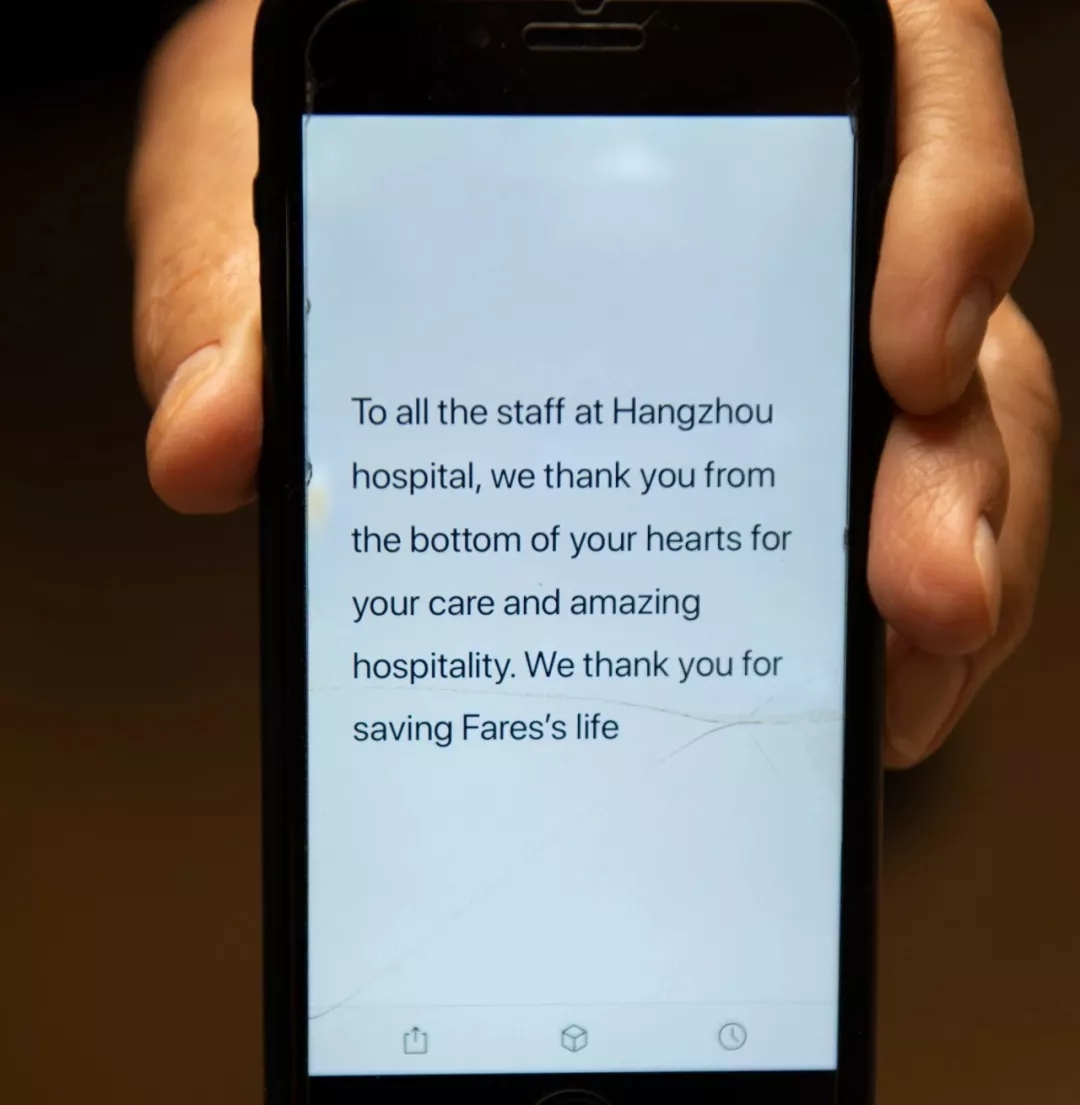
“Thanks China, thanks Professor Huang,” Fares kept repeating these words whenever he saw the medical staff, while his wife laughed beside him, “mocking” her husband for being too sick and in too much pain to speak before.
Not only did Fares himself highly praise the First Affiliated Hospital of Zhejiang University School of Medicine, but even his daughter, who flew in specially from Lebanon, had to give a thumbs-up to the medical staff at the Bone Marrow Transplantation Center. She said the nurses were highly skilled, drawing blood and administering injections with ease, and the doctors were highly skilled and compassionate, making it an exceptional medical experience.
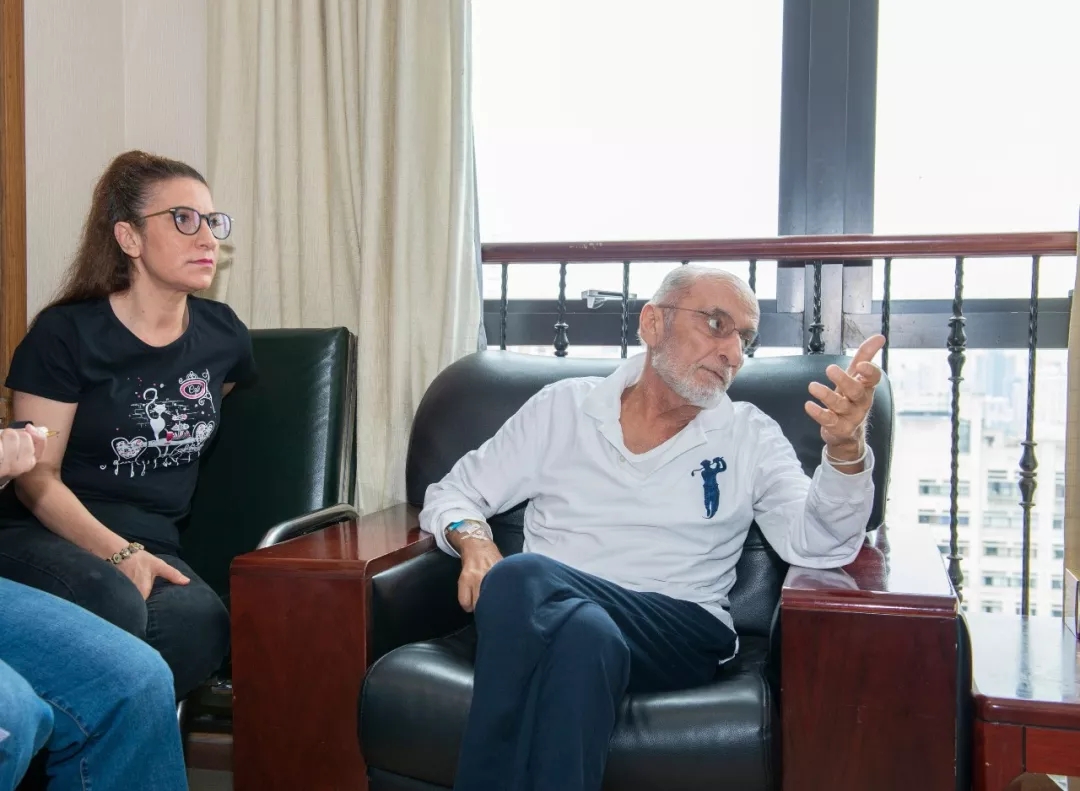
In the VIP ward, the lazy afternoon sunlight fell on the pristine white hospital bed. Accompanied by his wife, Fares had a radiant smile, a youthful glow, and looked like a different person from when he was first admitted. At this point, he was eager to start his familiar business work on his phone and computer, looking forward to returning to his home country and starting a new life.
Professor Huang’s team’s CAR-T therapy research results are internationally leading
The CAR-T cell therapy involves extracting the patient’s own T cells and subjecting them to a series of genetic modifications to generate CAR-T cells capable of precisely recognizing cancer cells. These “GPS-guided” super T cells are then reinfused into the patient’s body, not only avoiding the “indiscriminate bombing” of traditional therapies but also precisely and effectively killing cancer cells. Emily, the first child in the world to be “cured” by CAR-T immunotherapy, has survived for over 6 years without relapse, ushering in a new era of precision medicine.
Due to the remarkable efficacy of CAR-T immunotherapy, it was officially approved for marketing by the US Food and Drug Administration (FDA) on August 31, 2017, and October 18, 2017, respectively, with prices of $475,000 and $373,000. In China, CAR-T therapy is still in the clinical trial stage.
Under the leadership of Professor Huang, the Bone Marrow Transplantation Center has completed nearly 100 cases of CAR-T cell therapy for acute leukemia, lymphoma, and multiple myeloma. They have innovatively established clinical application protocols and prevention strategies for CAR-T cell therapy complications. Additionally, they have applied CAR-T cell immunotherapy in combination with haploidentical hematopoietic stem cell transplantation to achieve the cure of malignant hematological diseases.
Professor Huang has been invited to deliver more than ten keynote and oral presentations at renowned international conferences, showcasing research results that have reached an internationally leading level. Simultaneously, the center is actively conducting scientific research on key issues in CAR-T cell therapy, with related research projects receiving funding from the National Natural Science Foundation of China’s Key Program, General Program, and the Zhejiang Provincial Key Research and Development Program.
As one of the earliest clinical centers in China to conduct CAR-T therapy, the Bone Marrow Transplantation Center of the First Affiliated Hospital, Zhejiang University School of Medicine, is at an internationally leading level in the implementation of CAR-T therapy.
According to the search results for “Chimeric receptor” on the US Clinical Trials.gov website, as of August 2018, China had registered 237 CAR-T clinical research projects, surpassing the 236 projects in the United States, making it the country with the most CAR-T research projects in the world.
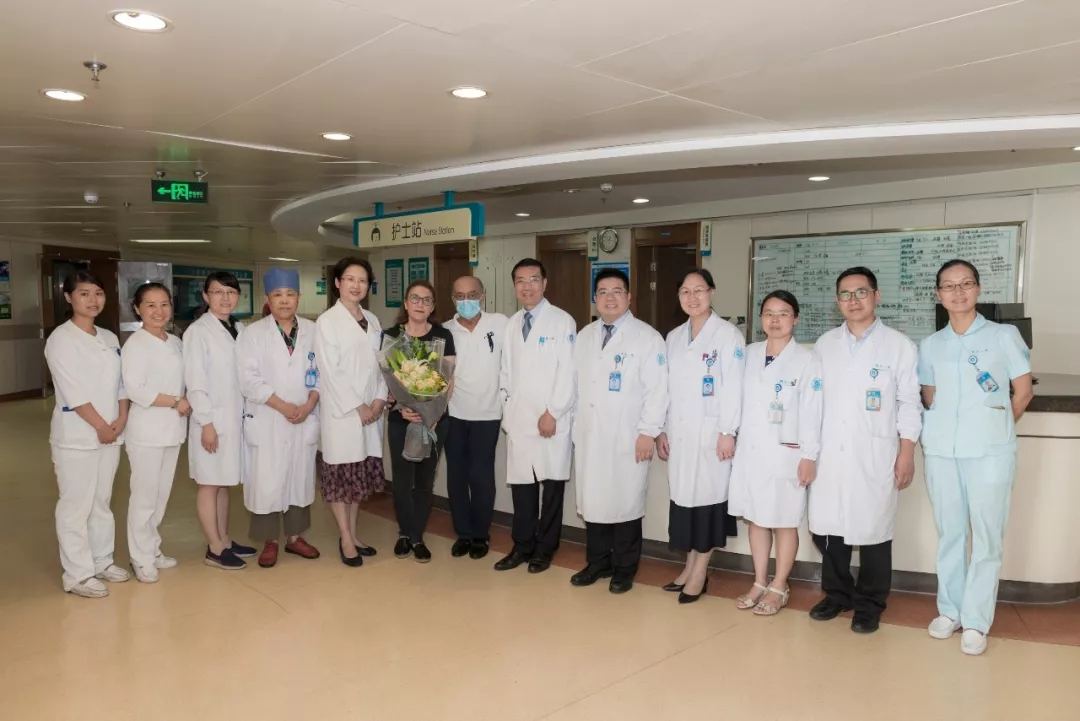
Content Source:浙大一院
